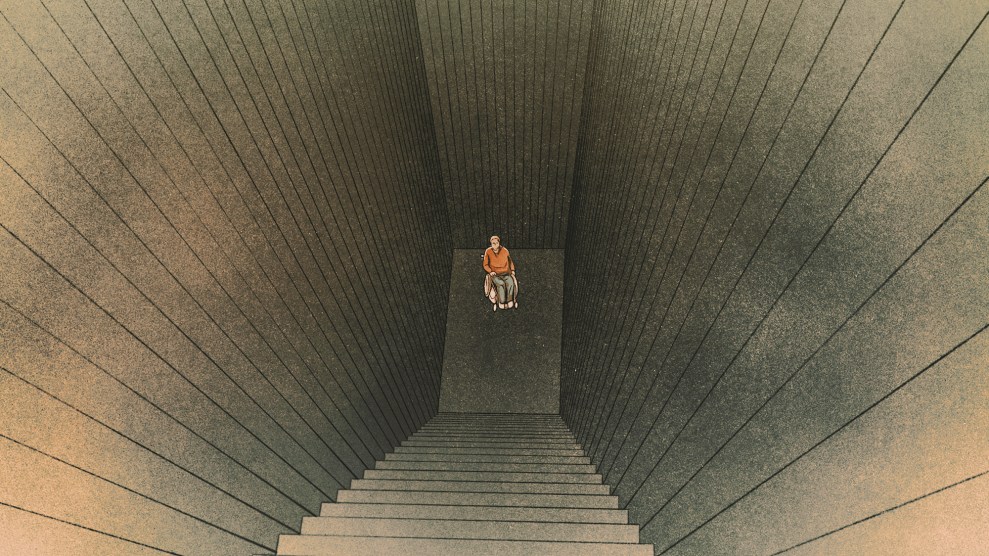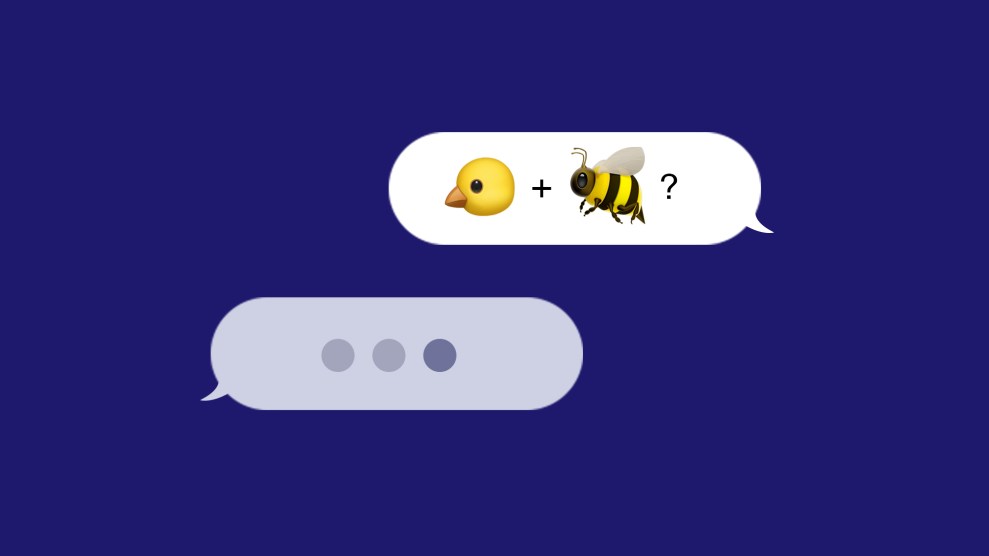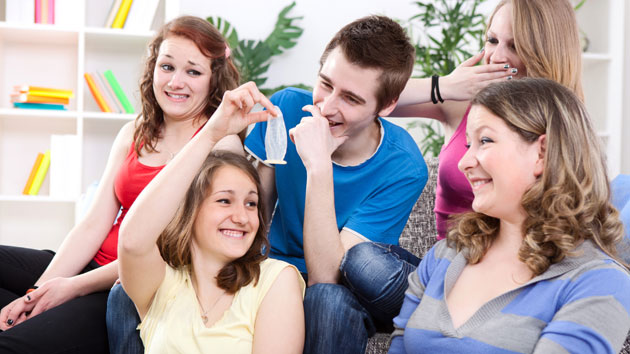When he was a teenager, Ben believed that he struggled with friendships and romantic relationships more than others his age. Discerning personal boundaries and finding ways to effectively communicate often bewildered him, and he wasn’t sure what certain signals meant or how many he may have missed. As someone with autism, cerebral palsy, and expressive dysphasia—which means it takes him longer to find the words he wants to use when speaking or writing—he found nearly every encounter with someone he liked or had a crush on fraught with anxiety and confusion.
He was not alone. Many people with intellectual and developmental disabilities are never explicitly taught that the ways a person touches someone else depend on the nature of the relationship, or even what it means for someone to consent. It was only once he was 26, in the spring of 2022, that Ben (not his real name) would be offered a class dedicated to teaching the nuances of those distinctions.
Every Wednesday and Friday for 10 weeks, he logged on remotely at home in Corvallis, Oregon, and met for an hour and a half with a dozen intellectually and developmentally disabled adults in their 20s across the state. Organized by a consortium including Oregon Health and Science University (OHSU) and the Oregon Health Authority, the class explored the fundamentals of healthy relationships, including ones that might become sexual. Using a curriculum known as Friendships and Dating that was developed in 2008 at the University of Alaska Anchorage, the students learned about personal boundaries and communication, shared relationship successes and failures, and practiced improving interactions with both friends and potential romantic partners.
For all young people, sex education varies widely by state, and options are often limited. But those with intellectual and developmental disabilities (IDDs) are even less likely to have access to mainstream sex ed—much less instruction with information relevant to their situations. Only five states require sex ed to be accessible to people with disabilities, and most leave specifics up to local schools. Just six states—including several of the above—and Washington, DC, even provide resources for educators who may want to teach accessible sex ed. While data is limited, just less than half of students getting disability services receive any reproductive health instruction, according to the Department of Education. And rates are even lower for low-income, autistic, Black, and Hispanic students who use disability services.
The numbers can be explained in part by a tendency to treat people with IDDs as childlike beings who need protection from knowledge about their own bodies and, advocates say, lingering stigma from the eugenics movement, which tried to block disabled people from having sex. But those ways of thinking put people with intellectual disabilities, who are seven times more likely to experience sexual assault, at risk. They are also disproportionately likely to be put in jail for behavior related to their disability; if people with disabilities don’t understand how consent works, they can cross boundaries they never learned existed and unintentionally hurt others.
“Relationships are not predestined to be abusive or unhealthy or risky for people with IDDs,” says Sondra LeClair, who is with the University of Alaska center that created Friendships and Dating after many of its clients with IDDs reported being victims of interpersonal violence or sexual abuse. “Relationships are an opportunity to connect, to have really positive experiences,” LeClair emphasizes.
While Oregon mandates sexuality education, and Ben took a high school health class, there’s no requirement that such instruction be accessible to all. Ben says he learned about basics like birth control but that important terms were sometimes difficult to understand and what goes into consent wasn’t addressed.
Ben and his fellow students began their online course by focusing on emotions and clarifying different types of relationships. They then moved on to practicalities: planning a date, sexual health, and personal safety. Eventually, he shared a bad experience he had dating a classmate in his first year of college. As their relationship developed, Ben turned to a trusted adult, who told the couple it would be fine to “explore sexually.” But Ben’s girlfriend was under 18, which led to him being charged with sexual assault, a painful breakup, and Ben changing schools. “There was no explanation of exactly what it was I was doing wrong,” he says.
While a court later vacated the charge, the experience left Ben distressed for years. But telling his story and what it taught him about choosing appropriate romantic partners and judging their boundaries was therapeutic. “I was able to bring those experiences and relate them to the other people who were taking the course so they could get an idea of, ‘Okay, what exactly are relationships that would not be considered healthy,’” he recalls, “‘and what are the signs that we should be looking for in those relationships?’”
Linda Sandman, a social worker who helped guide Illinois’ recent approval of Friendships and Dating, praises the course for the way “it pairs experiences in the community…along with classroom-based learning.” Ben’s class—conducted online because of Covid—relied on remote role-play, like demoing flirtatious body language and practicing what say if you want to cut a date short. But in-person instruction usually includes field trips to places like stores and coffee shops where students practice new skills.
When Friendships and Dating started in Alaska, it was designed to reach adults with intellectual disabilities who were already outside of traditional school settings. “There’s a lot of competing demands on schools,” Lindsay Sauvé, who runs OHSU’s initiative, says. “Teachers don’t come out of their teacher education program as sexual health educators.” Most of the organizations involved in Oregon’s effort are district-run transition programs, which some disabled adults attend until they are 22. Typically, transition programs aim to encourage independent living through employment services and life skills, but to Sauvé, they also seemed like perfect opportunities to foster relationships and sexual autonomy. Since Oregon’s initiative launched in 2020, OHSU has trained more than a hundred teachers in 49 transition programs and at another 27 organizations, making it the first state to implement such a widespread program.
Some advocacy groups led by people with disabilities have launched smaller initiatives to provide sexual health training for those who seek it out, but if states and school districts don’t offer specific programming tailored to people with disabilities, not everyone will find those resources, says Michael Gill, associate professor of disability studies at Syracuse University and author of Already Doing It: Intellectual Disability and Sexual Agency. “For folks who don’t get the education, they either learn from their peers, which more often than not, is not completely factual information, or they’re learning from pornography, which of course, is not a complete, accurate picture of sexuality,” he says. Whether or not they have accurate information, Gill and other advocates emphasize that young people with disabilities are talking about—and having—sex.
While right-wing parents’ groups have launched nationwide attacks on schools that teach about sexuality and gender, Sauvé and her colleagues gratefully report the culture wars have yet to hamstring their work. About five years ago, Kara Tison started a job as a transition program instructor in a district outside Portland that includes rural areas, knowing she wanted to teach sexual health. After hearing about OHSU’s plans to launch Friendships and Dating, she was unsure if administrators would be receptive to adopting the curriculum. But with her supervisor on board, the district supported her. She likes to introduce the program in January, after using the fall to build a foundation with students and parents. “That first year, I was really scared,” she recalls, but she was surprised when parents mostly responded with relief. “They knew this had to come up—but they didn’t know how.”
Not only has there been little pushback, Sauvé says that interest across Oregon has boomed. Even more conservative-leaning states that have adopted Friendships and Dating report a positive response. The University of Wyoming started training community organizations to teach the curriculum in 2015. Canyon Hardesty, who helps oversee that state’s program, says acceptance has been helped by scripts and materials from the class being publicly released—something she says is especially valuable “in some of these environments.” Proponents can also point to evidence it works: University of Alaska studies reviewing its first few years found that the social networks of people who completed the course grew, while their odds of being involved in interpersonal violence fell.
With spiking demand, the University of Alaska recently more than doubled the number of Friendships and Dating trainings it offers to facilitators nationwide. Administrators in Oregon say there has been interest in their blueprint from outside the state. And after Wyoming and Oregon found a novel way to use federal pregnancy prevention grants to support their programs, the Department of Health and Human Services is using the Oregon program as an example of how other states can also help their populations of disabled adults.
Christine Soyong Harley, president and CEO of leading sex education advocacy group SIECUS: Sex Ed for Social Change, notes that people with IDD are particularly vulnerable as large swaths of the country limit abortion and reproductive health information. She says the interest in sex education for people with IDD may also be related to those changes. “In those situations where they’re attacking young people’s right to reproductive health information and abortion care, you are going to see a dramatic increase in adverse sexual health outcomes for young people,” she says. “Some of our partners are saying, in this moment, there’s also an increased interest in having better sex education taught to young people to avoid these kinds of outcomes.”
It’s been more than a year since Ben completed his course, but he still discusses its lessons with his father, who says the program helped Ben build confidence. “To make a good decision, you need knowledge, and you need comfort,” his dad says. “It’s just been wonderful to see him develop both.” Since then, the Corvallis school district has added Friendships and Dating to its transition program. Ben, now finishing an accounting degree, wishes it had been available sooner. But he is happy younger students will learn things he waited too long for—not just rules to understand others’ boundaries, but the skills to decide “whether a relationship is beneficial to me.”













